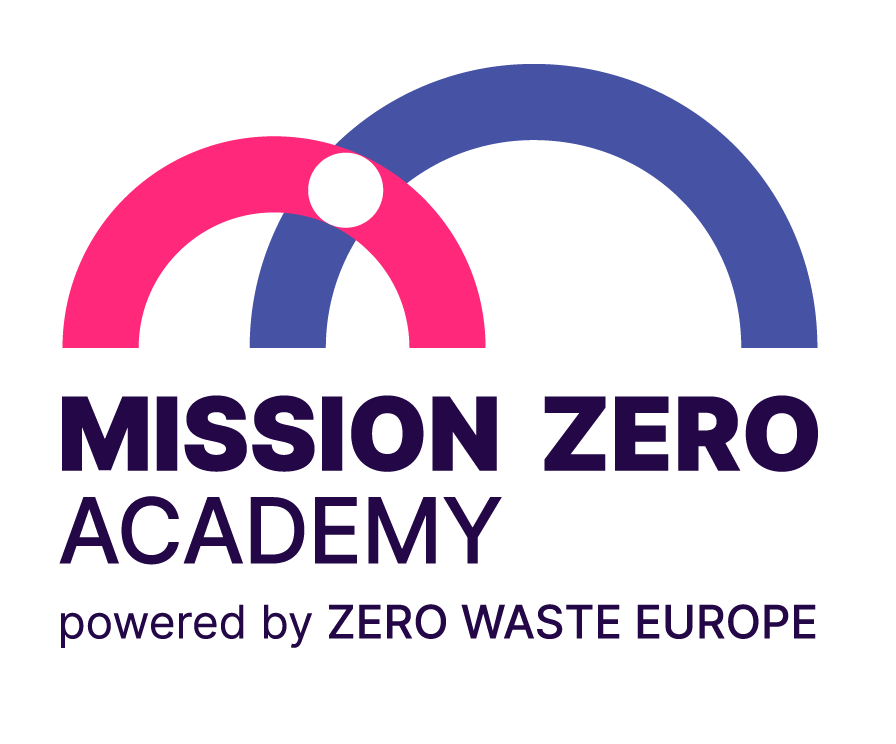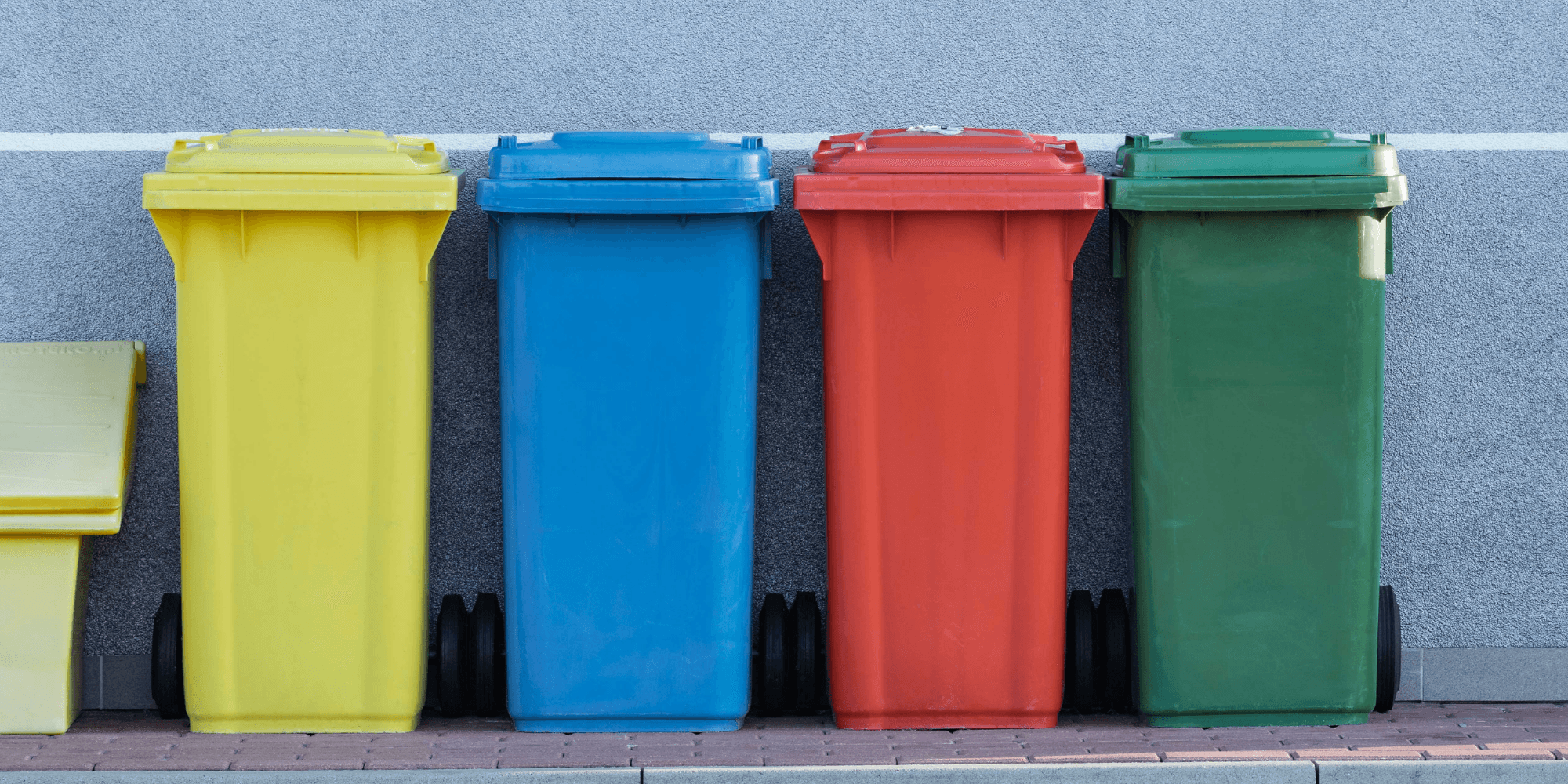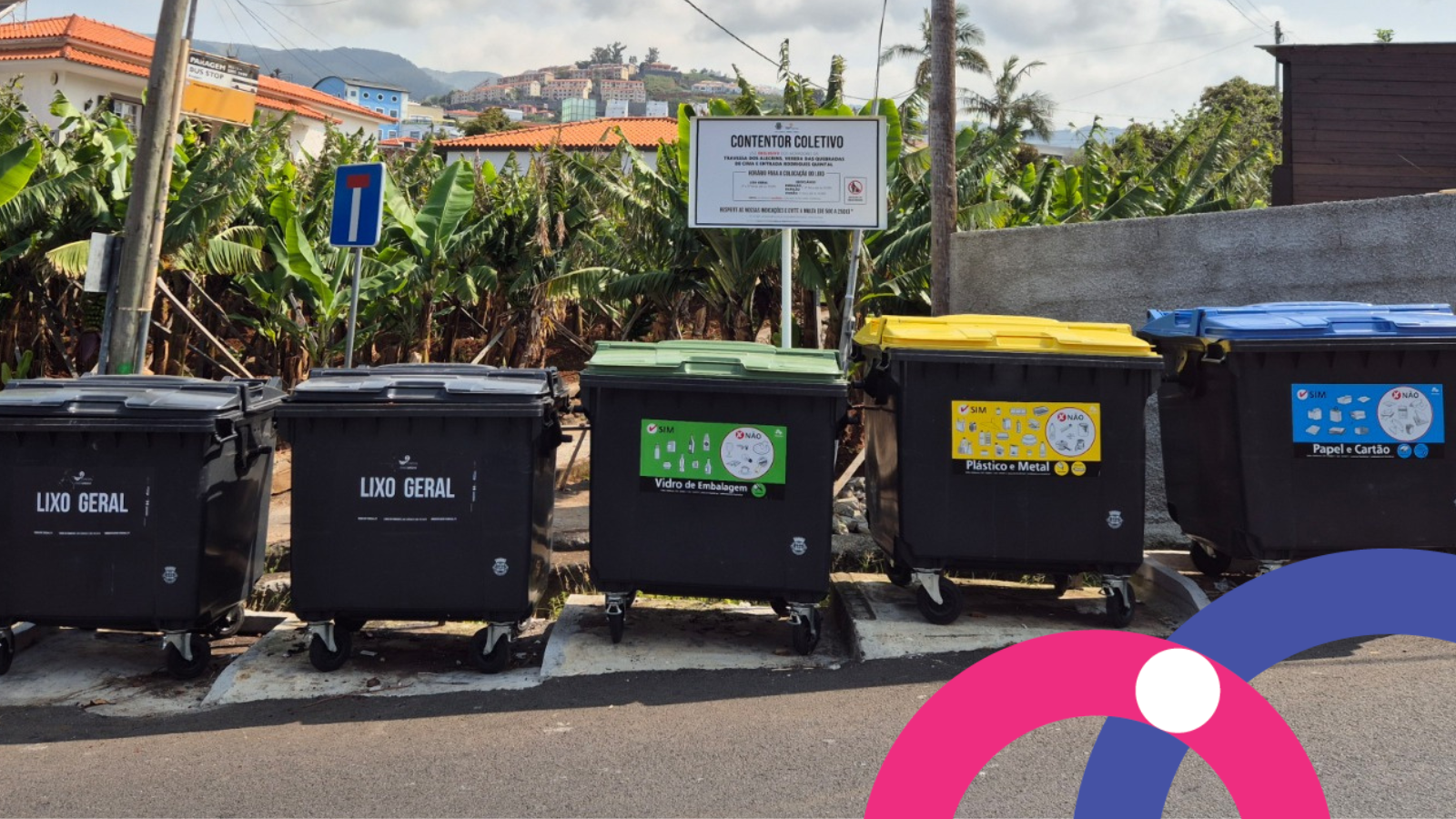A new report published by the European Commission in June 2023 identifies that only nine of the EU Member States are likely to meet the recycling targets for both municipal waste and total packaging waste: Austria, Belgium, Czechia, Denmark, Italy, Luxembourg, the Netherlands and Slovenia.
Ten Member States are at risk of missing the recycling targets for both municipal waste and total packaging waste. From these, Malta, Croatia, Poland and Romania seem to present the higher risk. Eight Member States are at risk of missing the municipal waste target, but not the total packaging target.
Figure 1: EU Member States’ prospects for meeting the recycling targets in 2025
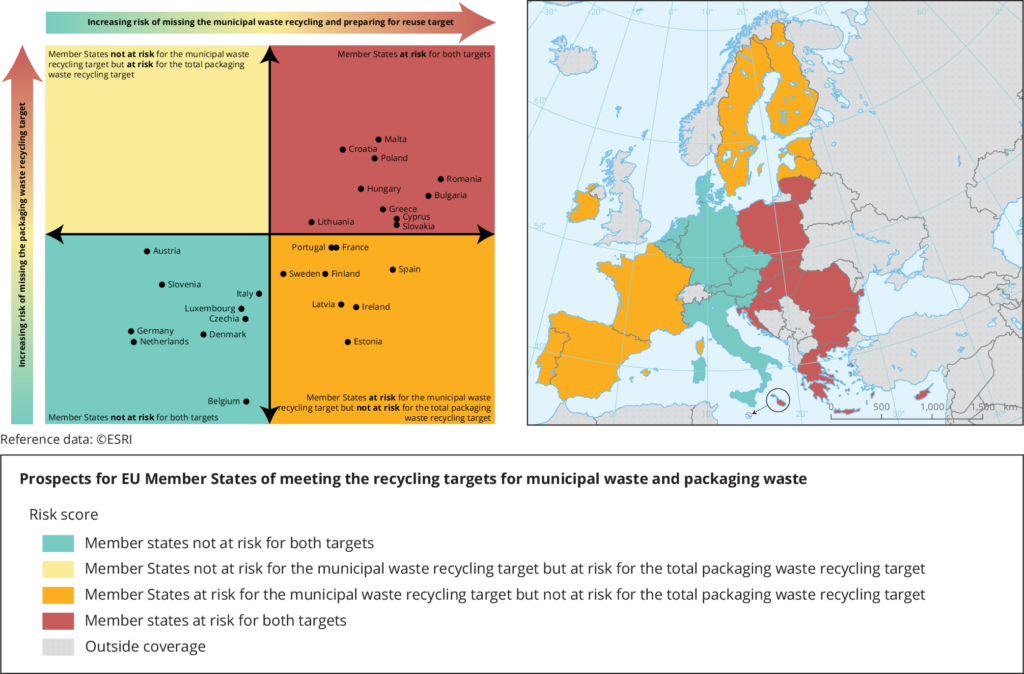
The new report is the most recent of the periodic early warnings that has been published since 2018 by the European Commission. They aim to detect shortcomings and allow for actions to be taken ahead of the deadlines for meeting the targets for 2025 established in the Waste Framework Directive and the Packaging Directive.
The targets for 2025 require Member States to take measures to achieve a minimum of:
- 55% preparing for re-use and recycling of municipal waste;
- 65% recycling of all packaging waste;
Besides these two key targets from which the report conducts the main risk assessment, material-specific packaging waste recycling targets were also defined and risk assessed: 75% for paper and cardboard, 70% for glass, 50% for aluminium, 50% for plastic and 25% for wood. The target for plastic packaging seems to be the most demanding, as only eight EU Member States are expected to meet this target.
Figure 2: EU Member States’ prospects for meeting the material-specific packaging waste recycling targets in 2025
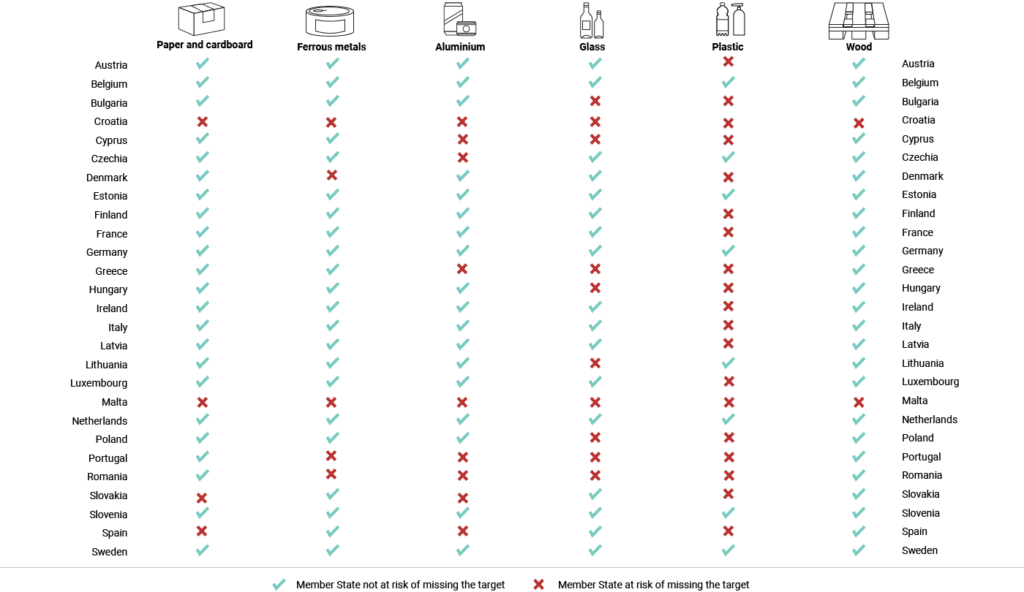
In addition to the recycling targets, the EU Landfill Directive requires the amount of municipal waste landfilled to be reduced to 10% of generated municipal waste by 2035. Currently, half of the Member States (13) are at risk of missing this target.
Additionally, in several countries, landfilling might be in the process of being substituted by incineration. This waste management process for residual waste results in a high level of carbon emissions and it is not addressed in EU targets nor in the aforementioned report.
Read More: Rethinking the EU Landfill Target
The report emphasizes that “turning waste into resources is an essential building block of the circular economy” and this entails meeting and going beyond the EU’s waste legislation. The EU’s targets for the treatment of municipal and packaging waste have been established to ensure all Member States implement measures and move up the waste hierarchy.
What can be done to achieve EU targets?
The report has identified that the majority of EU Member States have recently carried out or are in the process of implementing waste plans and reforms that will result in improving recycling rates in the years leading to 2025 and beyond. However, for some countries, the distance from the targets is large and greater efforts will be needed to implement reforms.
Mission Zero Academy (MiZA) has been working with municipalities across Europe, supporting the creation and implementation of these reforms. The Zero Waste Cities Certification is based on over 10 years of professional expertise and its methodology has been designed to help countries to comply and go beyond EU regulations and targets, including finding ways to reduce or terminate incineration.
Read more: Zero Waste Cities Certification
The transition to a circular economy requires a continuous effort by all EU Member States to pursue, maintain and further improve performance levels of preparing for re-use and recycling rates.
A zero waste strategy should consider:
- Definition, implementation, maintenance and further development of waste reforms that focus on a circular approach;
- Focus on biowaste, as it averages 34% of municipal solid waste (MSW) and has a great potential to generate energy or be converted into fertilizer;
- Better performance of capture rates and quality separate collection;
- The involvement of citizens by encouraging households to sort waste effectively and other awareness-raising activities;
- Usage of economic measures to reduce landfilling and incineration, and ensure waste treatment;
- Development of waste infrastructure that improves waste prevention, re-use and recycling;
- Prevention of non-recyclable waste.
Zero waste strategies should also include measures that focus specifically on packaging waste which entails:
- Continuous improvements in separate collection that helps maximising separate collection rates;
- Focus on meeting the plastic packaging recycling target, as it seems to be the most demanding for most countries;
- Implementation of re-use systems for packaging;
- Improvement of accuracy in packaging waste reporting;
Zero Waste Cities certification: a solution
Despite the challenges ahead, European countries share common goals in waste management, which is an opportunity to share best practices and methodologies, as promoted by Mission Zero Academy’s network of zero waste municipalities.
The Zero Waste Cities certification is a scorecard programme based on 5 levels of achievement that covers a broad range of waste management issues within 45 criteria, such as collection and analysis of waste data, communication and educational initiatives and performance against waste and recycling goals.
As a multi-year programme, the participating municipalities work continuously with a local mentor credited by Mission Zero Academy, that supports them in designing and implementing zero waste strategies tailored to each one’s needs.
Many solutions have already been found and applied with successful results. The most recent certified municipality by Mission Zero Academy, the island of Tilos in Greece, is a great example, as they achieved 43% of municipal solid waste (MSW) reduction. Within a year, the municipality has reached a 90% separate collection rate and has fulfilled both EU targets. The wide sharing of solutions in waste management subjects is, thus, a priority and an approach that Zero Waste Europe has been promoting for the last 10 years.
Read the full report published by the European Commission here.
Is your country failing in one or both EU recycling targets? Do you want to know more about the Certification of Zero Waste Cities? Discover more details about it here.

